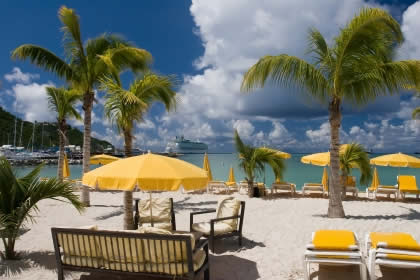Lesotho Facts
Lesotho, officially the Kingdom of Lesotho, is a landlocked country inside the boundaries of South Africa and was formerly called Basutholand.
Today the country is considered a constitutional monarchy lead by the Prime Minister. The King, Letsie the Third, is simply a ceremonial figure, much like the Queen of England. The Prime Minister Pakalitha Bethuel Mosisili is in charge of the running of the country for the ruling Lesotho Congress for Democracy (LCD) party. Lesotho is divided into ten districts each having a camptown (capital town). Maseru is the capital of the country and place for the best shopping and markets is Hlotse.
The geography of this country is very interesting in that is the world’s only independent state entirely above 1000 meters in elevation. There is usually snow on the mountains of the Lesotho Highlands all year round with snow fall in the valleys and deserts from May to September. The majority of the rainfall experienced is in the form of summer thunderstorms. The average summer temperature is 30 degrees Celsius with the Winter mercury dropping to below 7 degrees on the lowlands and minus 17 in the highlands.
Much of the economy of Lesotho is made up of farming and agriculture, but due to shortages in South Africa, they have begun selling electricity and water to their neighbor. The Lesotho Highlands Water Project was therefore developed in 1986 to aid both countries and as water is Lesotho’s only natural resource, it has really helped the economy. The water is dammed and stored from the Orange River and spread to the Johannesburg and Free State regions which were struggling with the large population and dry semi desert areas.
The currency of Lesotho is the Loti (Maloti) and is completely interchangeable with the South African Rand. This is because of the Common Monetary Area (CMA) exchange control that was established between South Africa, Lesotho, Swaziland and Namibia. With many other countries having come to the financial aid of Lesotho including the United States of America, The World Bank, the United Kingdom, Ireland, Germany and the European Union, they have put various measures in place to create tourism. One of which is a ski resort high at Oxbow in the Maluti Mountains which is attracting many South Africans as well as other tourists. Other fund things to do while on vacation here is to go pony trekking in the Katse and Malealea regions. At Morija there are some brilliant dinosaur fossils and footprints and there is an interesting museum there too. For a really special drink you can visit the highest pub in Africa at Sani Pass.
Another amazing sight is the Maletsunyane Falls, which is in a place called Semonkong, meaning “place of smoke” due to the 200 meter falls. This is the highest drop waterfall in Southern Africa and a memorable time here would be to go abseiling alongside the falls which is also the highest commercial abseiling area in the world.
There are many languages that are spoken here, but English and Sesotho are the main official ones with certain sub groups like Sotho, Nguni and Bantu being most commonly spoken.
Afrikaans, French, Xhosa and Zulu are also spoken. Although many of the country’s people only speak Bantu, their religion is Roman Catholic with only a small group of people having tribal religions. As Lesotho is very rural and media is not often seen here, the incidents of HIV and AIDS are very high. It is estimated to be at 29 %, which is one of the highest in the world. Since 1999, the government has introduced certain projects to create awareness and proactive programs are being slowly introduced.
Culture is important here with the Morija Arts and Cultural Festival being held annually in April to celebrate local music, dance and arts. There are concerts, food stalls, craft stalls and much more. In October a cultural competition is held over 5 days and there are sections for poetry, drama, and traditional dancing. There are also categories for primary school students, high school students, and adults. Of the many cultural aspects, it is noted that the traditional instruments are still used in this country like the lekolulo, a type of flute, the setolo-tolo, and the women’s thomo, which is a stringed instrument. The people of Lesotho are friendly and welcoming and visiting this country is a wonderful experience that you will never forget.
